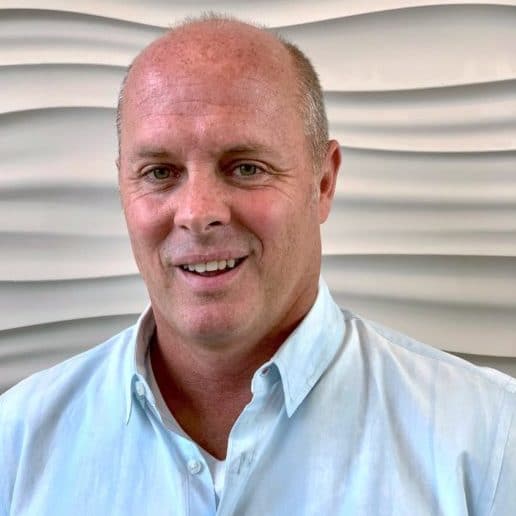With a law degree, hospitality experience, more than a dozen years as CHRO of the nation’s most-visited zoo and a leadership book under his belt, to say Tim Mulligan’s career path has been interesting is an understatement.
He recently further diversified that resume by becoming the first CHRO of the Allen Institute for AI (AI2), a fast-growing research institute created in 2014 by Microsoft co-founder Paul G. Allen to investigate and expand the potential of AI. Mulligan joined the organization in June after four years as CHRO of Vulcan Inc., another of Allen’s ventures that previously oversaw a number of AI conservation projects later acquired by AI2. With an aim to advance “AI for the common good,” AI2’s mission dovetails with the growing demand for emerging—and ethical—use of technology in human resources, creating a unique intersection for Mulligan.
Mulligan recently spoke with HRE about the future of AI in HR.
HRE: How has your own experience with and reliance on AI developed throughout your HR career?

Tim Mulligan of AI2
Mulligan: In my 20 years as a CHRO, I take pride in being continually focused on technology, future trends in HR and creating unique best practices that embrace technologically forward ideas. This is one of the reasons why I was so excited to join Vulcan in 2017—working for a company that uses technology to solve the world’s toughest problems. Now at AI2, it is thrilling to be working for an organization at the forefront of AI breakthroughs. I can’t wait to join our illustrious team of AI researchers in utilizing AI to improve our own internal HR practices. That really excites me. I’m looking forward to putting into play enhanced AI utilization in recruiting, onboarding, training and other basic HR functions.
See also: Can AI help reverse the Great Resignation?
HRE: You have extensive DE&I experience—from that perspective, where do you see the most opportunity for AI when it comes to advancing workplace DE&I?
Mulligan: There are many potentials here that I see—the obvious being the increased use of AI in the talent acquisition process. Here, companies should be able to see measurable and definite results in the basic recruiting metrics, namely screening of applicants, including rooting out bias in this process. In regards to inclusion and belonging, there are many opportunities for AI, including the way we conduct pulse surveys, use chatbots to assist our employees and in the way we deliver training on topics, including DEI training.
HRE:As AI becomes more embedded in the HR function, what kind of skills development do today’s HR professionals need around the deployment of ethical AI?
Mulligan: I would definitely say that a fundamental skill would be the capacity to embrace change and be willing (and excited, for that matter) about the possibilities that innovation and technology can bring to your HR team and practice. This will also include a strong reliance on having a dedicated HR tech manager or a strong partnership with your IT department. Utilizing AI takes a great deal of strategy and planning—for example, implementing an effective HR chatbot—and an HR team ready to rise up to the challenge.
HRE: What was your day one priority when you started the CHRO role at AI2, particularly since you’re the first person to hold this position?
Mulligan: My day one priority here at AI2 is to really be a strategic partner for our CEO, Oren Etzioni, and the organization overall. As for specific initiatives that are at the top of my list, I am working toward creating a strategic plan and vision for HR at AI2, which will include immediate initiatives around DEI, HR technology and innovative ways to recruit and retain top talent.
Related: Here’s why AI is making HR pros indispensable
HRE: What role will the talent, current and future, at AI2 play in the organization’s plans for rapid growth?
Mulligan: Talent is key. At AI2, we hire experts in the AI space, and we work hard to keep our team very motivated and engaged. We are a nonprofit organization, and thus need to be very creative and intentional in how we compete with the for-profit tech industry. We are also rethinking how our employees work. We have recently announced that we are a true hybrid organization with regards to working location. After having proven during the pandemic how effective remote working can be for our institute and how important it is to our current employees—as well as how much it is on the mind of nearly every new applicant and recruit we interact with—we are embracing a flexible remote work policy.
HRE: How do you think the events of the last year-and-a-half—particularly the pandemic and the push for racial equality—will permanently reshape the role of the HR leader?
Mulligan: The last year-and-a-half has fundamentally changed the role of the CHRO in my opinion. As sad and distressing and stressful as the world has been since early 2020, it’s been an immensely educational, eye-opening and transformational time for HR team members. We are now more tuned into the employee experience than ever—what our employees are going through emotionally and physically, and how the HR team really needs to step up and be that beacon of hope, help and resilience for our employees. We have improved our benefits, improved our wellness programs, strongly reinforced our DEI programs, changed our policies and led the sweeping culture changes in our organizations. And hopefully, we are now much stronger, more effective and indispensable than ever before.